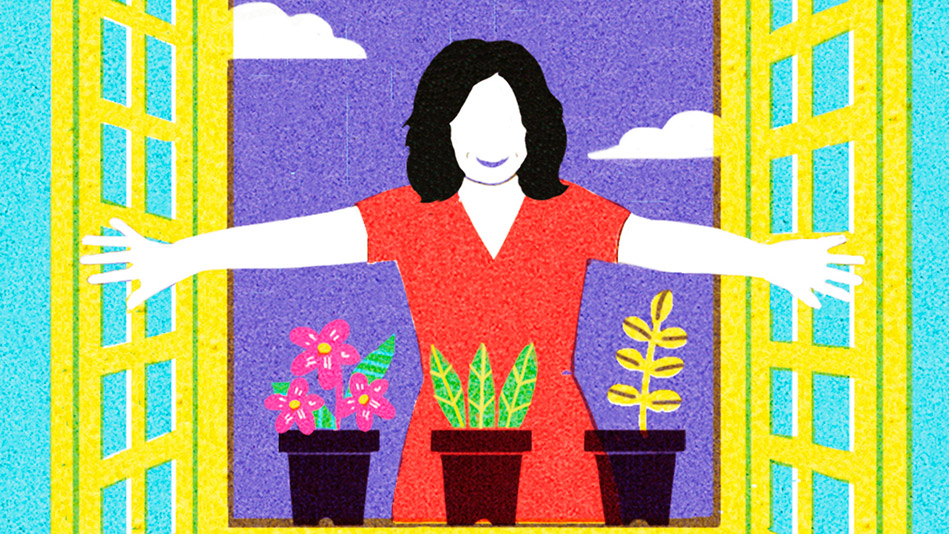The Joy of 57: You Finally Understand the Concept of Enough
The best-selling author of A Tale for the Time Being describes what she gained when she stopped yearning for what she doesn't have.

Illustration: Bonyoun Kim
My friend Linda and I are both 57, and like most women our age, we've suffered some hardships—divorce, illness, the deaths of loved ones—but now we're in a pretty good place, enjoying our work and our lives. I've written a few novels and directed a couple of documentaries, and several years ago I even became ordained as a Zen Buddhist priest. Linda has won awards for her work as a journalist and raised four happy kids. The other day, she said wistfully, "I just wish I were 37 and enjoying the life I have now."
"Impossible!" I said. "At 37, we wouldn't have been able to enjoy these lives, even if we'd had them!"
Linda laughed. "You're right," she said. "Oh, well."
Since that conversation, "Oh, well" has become our motto. It signifies a kind of resignation, but not in a grim or defeated way. "Oh, well" is about accepting life just as it is.
Twenty years ago, I wasn't capable of that. I took everything too seriously; I was just beginning to make documentaries and was still dreaming of writing novels. I was too worried about failure to enjoy success when it came, and when I did succeed, I only wanted more. More films, more books, more recognition.
I'm not berating my younger self. Anxious ambition was appropriate for that age, and without it I might not have persevered long enough to start to create. But though I haven't pressed pause on my drive or determination, I now understand the concept of enough. I can appreciate what I have rather than yearning for what I don't. I'm probably not going to learn Mandarin before I die, or memorize all 154 of Shakespeare's sonnets, or move to Africa to care for baby elephants. Oh, well. I have a sense of peace and a deep appreciation for the life I'm living. At 57, I'm beginning to understand that everything I'm enjoying is for the time being—which makes it all the more precious. So, at least for now, 57 is the only age to be.
"Impossible!" I said. "At 37, we wouldn't have been able to enjoy these lives, even if we'd had them!"
Linda laughed. "You're right," she said. "Oh, well."
Since that conversation, "Oh, well" has become our motto. It signifies a kind of resignation, but not in a grim or defeated way. "Oh, well" is about accepting life just as it is.
Twenty years ago, I wasn't capable of that. I took everything too seriously; I was just beginning to make documentaries and was still dreaming of writing novels. I was too worried about failure to enjoy success when it came, and when I did succeed, I only wanted more. More films, more books, more recognition.
I'm not berating my younger self. Anxious ambition was appropriate for that age, and without it I might not have persevered long enough to start to create. But though I haven't pressed pause on my drive or determination, I now understand the concept of enough. I can appreciate what I have rather than yearning for what I don't. I'm probably not going to learn Mandarin before I die, or memorize all 154 of Shakespeare's sonnets, or move to Africa to care for baby elephants. Oh, well. I have a sense of peace and a deep appreciation for the life I'm living. At 57, I'm beginning to understand that everything I'm enjoying is for the time being—which makes it all the more precious. So, at least for now, 57 is the only age to be.



